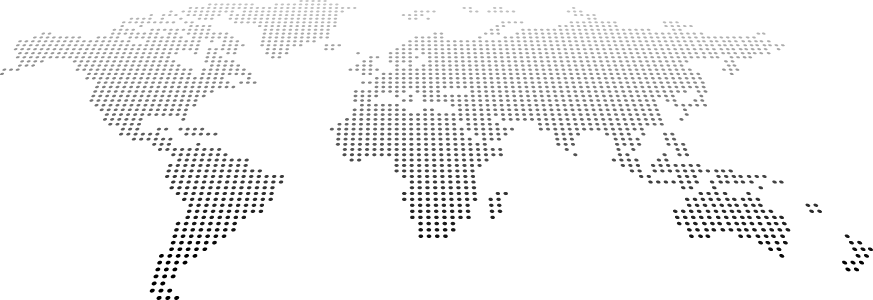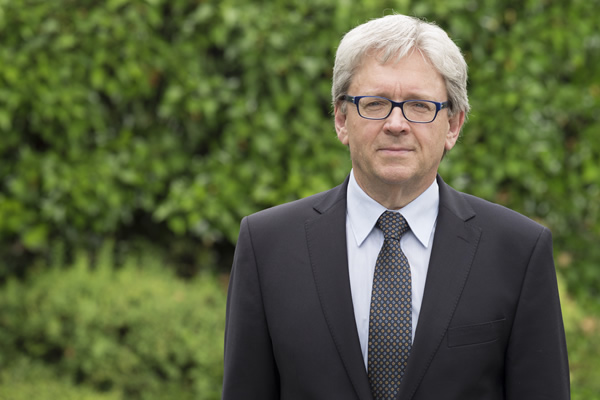International but local

For small and medium-sized enterprises, the globalisation of the world's markets opens up new opportunities, while also creating a whole new set of challenges. Rapid internationalisation and growing foreign markets are key success factors for companies.
There are many different paths a company can take to establish and stimulate business abroad. How does the company work with its global partners? Michael Schweiger, former Sales Director for Austria, and Marco Hamawi, Sales Director for Spain, discuss the aspects and dependencies that the company considers when entering and operating in foreign markets.
How did your careers start?
Schweiger: In one of my previous jobs, a sister company of DEKOTEC in Austria was one of my clients, which gave me a good insight into how the company works. What impressed me most about this relatively small company was how dynamic it was. Twenty years ago I decided to join and help to shape its future success – and I've never looked back! Hamawi: I previously worked for large companies in Spain and Argentina, before joining the sister company of DEKOTEC in Spain 12 years ago. I was motivated by the challenge of working with a small, committed team to help the company branch out into new markets. I initially worked at the headquarters, where I learnt everything I needed to know about our long-life products and built up a good network of contacts – a network that is now paying off and helping to streamline my day-to-day communications.How has your role developed since you joined?
Schweiger: We've achieved great success in Austria. When I joined the company, our Austrian sales were floundering in a highly competitive market, because our customers were not yet aware of the expertise of our company and the high quality of our products. So we got stuck in and worked hard to get to where we are in the market today: We're now the market leader and our customers know that they can rely on us for exceptional solutions. Hamawi: Unfortunately, we're not at that point yet in Spain. The knock-on effects of the financial crisis have resulted in stronger competition in our sector; we're under enormous cost pressure. But we are staying in close contact with our customers and we are their first port of call if they have any problems. This approach is paying off, and our customers value us as a partner because of the quality of our products and our strong reputation for development. Our customers are particularly pleased with our local service provision and we can use this as a basis to continue improving our position in the market. Our office in Madrid doesn't just manage the Spanish market – we look after the South American countries too.Why is South America an attractive market?
Hamawi: In many markets, including Europe, growth is generally limited. But South America still offers exceptional potential for development. The countries are improving their infrastructure, so there are many large-scale projects out there for the taking. To win these projects, you need an in-depth understanding of the markets involved and an approach that has been developed specifically for each target country.Could you explain that last point in a little more detail?
Hamawi: South America is home to many incredibly diverse cultures – and that's without even considering the variation in legal regulations and local situations. Doing business in Peru is entirely different to doing business in Chile or Bolivia. In Chile, we visited customers three times a day to ensure that we were around to answer questions and to tailor our quotation to the customer's every specific need. In Peru, it took a week of back-to-back meetings before the customer actually arrived at a decision regarding what he needed. Our strength lies in the fact that we are present locally and are therefore seen as accountable. Communication is also a very important aspect: In Bolivia, you address your partners with their certified academic title, such as "Engineer", while in Argentina, collaboration and communication proceeds a little more like it would in Europe.Mr Schweiger, do you recognise these challenges?
Schweiger: Yes, most definitely. We all know how diverse German-speaking regions are. However, sometimes the differences that really do affect our success can be concealed: All the members of our sales team are Austrian, and I myself am Austrian, so we have a better understanding of our fellow Austrians and what makes them tick than we do of any other nation. We also manage the Hungarian arm of the business from Vienna. We've got a local representative in Hungary who communicates with our Hungarian partners in their language and provides technical assistance on their level. What both locations share is their proximity to the customer, a drive to identify the best possible solution and the persistence to get things right, down to the very finest detail. This approach is how we got our products into all artificial ski slopes in Austria. To get to that point, we needed to show the customer that we would be there for them and prove that we were excellent problem-solvers.What do your customers value about your company?
Hamawi: They value our high-quality, long-life products and our services, such as tailored training sessions delivered at the customer's site. It's important that customers know and see that we are developing custom solutions to tackle the specific problems that they face. Customers also have the same contact over the many years of their partnership with us, which fosters a trusting relationship. Schweiger: Exactly the same is true of Austria and Hungary. Personal contact with our customers is one of our main priorities. We maintain this contact and relationship continually, not just when there's a project out to tender. This continuity builds the customer's confidence in us and is one of our key factors for success. In Austria, we have a reputation for reliability, quality and longevity. But that's not enough for us.What exactly do you mean by that?
Schweiger: Markets and market needs never stop evolving. We need to stay flexible. These days, we have very little time at our disposal for detailed preparations. So we offset this fact by thinking ahead, and considering how we might be able to fulfil the demands of our customers rapidly. Our aim is to be one step ahead of the competition at all times. Hamawi: The time factor is also of critical importance in South America. We need to get everything to the customer's site as quickly as possible. We are constantly working to optimise our logistics processes and ensure that our "Made in Germany" products are available to customers within tight delivery deadlines, in spite of the huge distances involved. This means that we're always improving our service – and our competitiveness. All of this is globalisation in action.Thank you for the interview!
Contact – What can we do for you?
Do you have questions about products, system solutions or our company? Fill in our contact form. We are looking forward to hearing from you.

